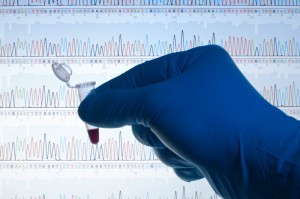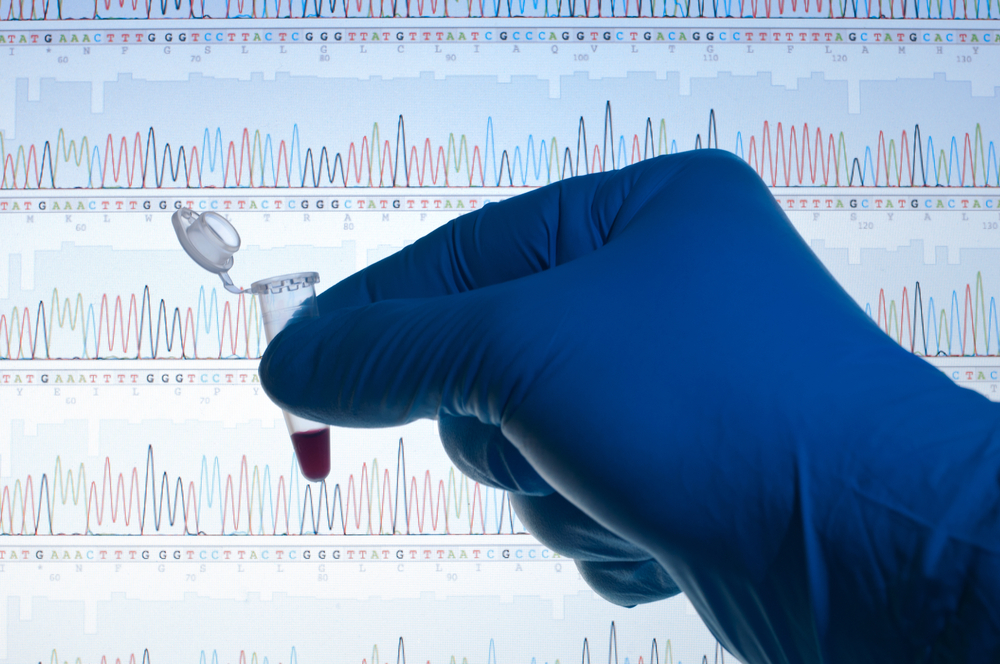 In a study published in the Journal of Clinical Oncology, researchers found that patients diagnosed with triple-negative breast cancer (TNBC) should be tested for mutations in known predisposition genes, such as BRCA1 and BRCA2.
In a study published in the Journal of Clinical Oncology, researchers found that patients diagnosed with triple-negative breast cancer (TNBC) should be tested for mutations in known predisposition genes, such as BRCA1 and BRCA2.
“Clinicians need to think hard about screening all their triple-negative patients for mutations because there is a lot of value in learning that information, both in terms of the risk of recurrence to the individual and the risk to family members. In addition, there may be very specific therapeutic benefits of knowing if you have a mutation in a particular gene,” lead author of the study Fergus Couch, Ph.D., professor of laboratory medicine and pathology at Mayo Clinic said in a news release.
TBNC is a difficult malignancy to treat, since these tumors lack estrogen, progesterone and HER-2 receptors, which are the specific targets of many therapeutic drugs. Nonetheless, some studies have found that this type of breast cancer present genetic alterations that render it susceptible to cisplatin, a chemotherapy agent, or PARP inhibitors.
In order to assess the mutation frequency in predisposition genes in TNBC patients, the research team sequenced DNA from 1,824 patients in oncology clinics in the U.S. and Europe, in what is considered the biggest genetic analysis in triple negative breast cancer to date.
Researchers found that a significant percentage of TNBC patients (15%) had damaging mutations in predisposition genes, most of which in DNA damage repair genes. Within this group, 11% showed BRCA1 and BRCA2 mutations, while the remaining had mutations in different predisposition genes, including PALB2, BARD1, and RAD51C.
These findings indicate that TNBC may have a different origin than other forms of breast cancer. Furthermore, the results also support the guidelines release by the National Comprehensive Cancer Network (NCCN) for genetic testing of TNBC patients.
[adrotate group=”3″]
“Triple-negative breast cancers are different from all the other breast cancers. Other studies have suggested that this form of the disease might be associated with some defect in DNA repair, and our study verifies that. Our findings generate a whole new set of hypotheses about how triple-negative breast cancer might be arising, which could give us better ideas for prevention or new therapies for this disease”, Dr. Couch explained.
Using their results, the team assessed if the current screening guidelines could isolate every TNBC patient presenting BRCA1 and BRCA2 mutations. Indeed, the NCCN guidelines (screening is recommended when there is a family history of cancer or a diagnosis under the age of 60) were extremely accurate. However, the UK’s National Institute for Clinical Excellence (NICE) guidelines did not successfully identified 24% of mutation carriers.
“Our results confirm that the NCCN guidelines are good, and provide evidence to support what they have recommended,” Dr. Couch added. “But we think the NICE guidelines could be expanded to include more of the triple-negative breast cancer patients with mutations.”

